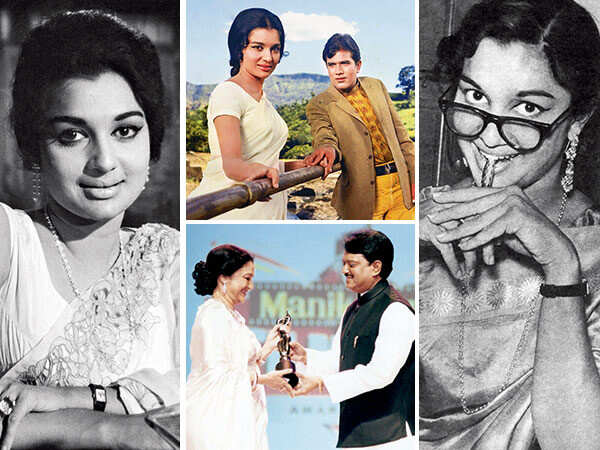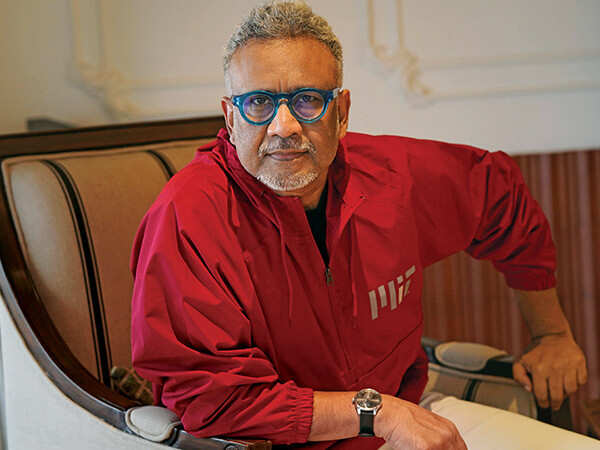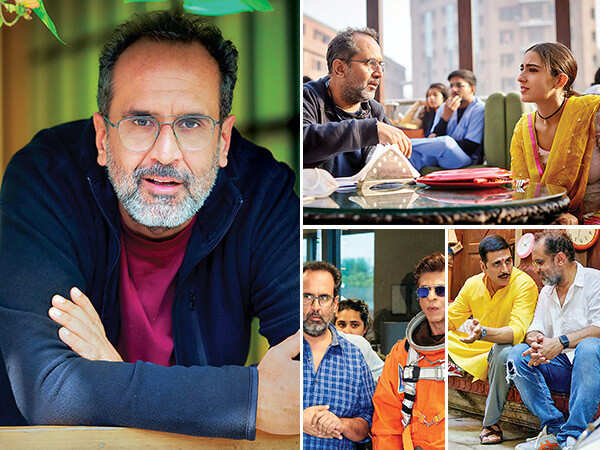Exclusive: I was the only heroine whose name sold films – Asha Parekh
8 min read
If any lead actress of the ’60s-’70s has scaled the full arc it’s Asha Parekh. All the pizzaz in her early films, her ditties Aaja aaja, O mere sona re, O haseenon zulfon wali, Bangle ke peeche… still rock the party floor. She has equally evocative elegies to her credit… Suno sajna papihe ne, Jaiye aap kahan jayenge, Aaja piya tohe pyaar doon, Achha toh hum chalte hain… are top reruns on the airwaves. The finest ode would be Majrooh Sultanpuri’s Teri aankhon ke siva from Chirag, the mukhda inspired by Faiz Ahmed Faiz’s masterpiece Mujhse pehli si mohabbat mere mehboob na maang. Widening her world, Asha later directed top shows on television, including no, helmed CINTAA (Cine and TV Artistes’ Association) and the Censor Board, apart from film distribution. Her personal profile displays the same poise she lent to her professional run.
Self-respecting and not wanting to be dubbed a home-breaker, she chose not to marry the man she loved – filmmaker Nasir Hussain. Self-regarding, she turned away from a two-timing suitor in the US. Self-aware, she helped herself break out of transient depression. Self-reliant, she’s embraced life solo and with spunk. A feminist without a placard, she has a message for women. “Never trust people on face value. Know the person well or they can take you for a ride. Remember, women are more powerful, more intelligent and stronger than men,” smiles the actress who’s been there, done that…
JUBILEE STAR
It was her dance recital as a 10-year-old that left acclaimed filmmaker Bimal Roy impressed by Asha Parekh. Soon he cast her as a child actor in Maa (1952) and later in Baap Beti (1954). Her first attempt at debuting as a heroine in Vijay Bhatt’s Goonj Uthi Shehnai (1959) was a miss and the filmmaker believed she was not ‘star material’. But eight days later, producer Sashadhar Mukherjee and writer-director Nasir Hussain cast her in Dil Deke Dekho (1959) opposite Shammi Kapoor. “I did feel bad about the setback. But immediately, I got another film. I won popularity overnight. Shammiji was a huge star,” she smiles. It also kicked off her association with mentor Nasir Hussain, who cast her in six films – Jab Pyar Kisi Se Hota Hai , Phir Wohi Dil Laya Hoon , Teesri Manzil, Baharon Ke Sapne, Pyar Ka Mausam and Caravan (between 1961-1971). Her pairing with Shammi Kapoor in Vijay Anand’s whodunit Teesri Manzil shook the box-office. “Vijay Anand was our finest. Shammiji and I shared a great rapport. I was naughty and played pranks,” says Asha, who boogied with the swashbuckling Shammi in Aaja Aaja and O haseena zulfon wali. “I’m a classical dancer. But I’d learnt western dancing while doing Dil Deke Dekho. Later, I learnt jiving and rock and roll with Hermen Benjamin Masterji, which helped me in Teesri Manzil,” she says.
Soon enough, Asha came to be branded as the ‘jubilee girl’, rolling out hits with every hero – from Joy Mukherjee (Phir Wohi Dil Laya Hoon, Love in Toyko), Biswajeet (Mere Sanam) to Shashi Kapoor (Pyar Ka Mausam) in the ’60s. “I won’t say I was lucky for my heroes. Rather I was lucky for my producers and distributors. I was the only heroine whose name sold films,” maintains the highest paid actress of her times.
GLAM GIRL
Her vibrant persona, including her ginger lip colour and taut churidar kurtas and embellished shararas, became a trend to trail. “Leena Daru was an art director and worked with me on stage. She picked up from my mother (the late Sudha Parekh), who initially designed my costumes,” says the actress adding, “I followed diets to stay slim. But nothing like today’s size zero. When you exceed limits to lose weight, it can boomerang.”
An adored star, if her fan mail was humongous, so were her enthusiasts. “A man would come to my shootings and say he’d marry me. Then one day my driver hit him, something which I disapproved of. He said, ‘I don’t like him saying that’.” At events, she had to be manoeuvred away from the madding crowds that would throng to catch a glimpse of her. “For instance, if a premiere was held at Liberty theatre, they’d arrange to take me out from the back door of Bombay Hospital.”
Even at her peak, Asha didn’t abandon her love for dance. “I’d have a dance recital at Shanmukhananda Hall, Birla Matushri Hall or Bhaidas auditorium regularly,” she recalls. What helped her retain equanimity amidst adoration was her mother’s temperance. “She didn’t allow me to behave like a star,” the star recalls.
ACCLAIM & AWARDS
Her glamorous image took on gravitas with Raj Khosla’s Do Badan (1966), Chirag (1969) and Main Tulsi Tere Aangan Ki (1978). “Some critics wrote I was not a good actor. It hurt me. But Do Badan changed everything. Further Chirag and Main Tusli… proved that I was not as dumb as people thought I was.” She elaborates, “Rajji and
I shared a rapport. He gave me the liberty to do what I wanted to. He was a fine director though a bit laidback. But he was great with song picturisations. He used a circular trolley twice around for the long shot in Sona lai jaa re in Mera Gaon Mera Desh (1971).” She’s proud of her role of the ‘other woman’ in Main Tulsi Tere Aangan Ki. “Tulsi was initially offered to Raakhee. She didn’t do it as it was a small role. I told Rajji that he’d have to retain what he’d written. He kept his word,” she maintains.
Another milestone was her pairing with Rajesh Khanna in Aan Milo Sajna (1970) and Kati Patang, (1971), super-hits that spearheaded his stardom. “We first did Baharon Ke Sapne (1967). Rajesh was a quiet newcomer then. Later, when we were doing the two films simultaneously, he began talking. Then he became a big star and things were different,” she says adding, “I’ve never witnessed his kind of stardom.” She recalls the hysteria Rajesh invited when they were shooting the song Jis gali mein tera ghar (Kati Patang) at Nainital Lake. “On the first day, we just couldn’t shoot. We had to cancel the shooting. The crowds went haywire. We began filming only after the police bandobast.” Shakti Samanta’s Kati Patang earned Asha the Filmfare Award for Best Actress.
“I was thrilled to receive the award from General Sam Maneckshaw. It’s a moment I cherish till date.”
FRIENDS & CO-STARS
Single and singularly attractive, Asha, however, was never linked up with her co-stars. “I was a tomboy; happy-go-lucky… Everyone was friendly with me. But no one could ever think of having an affair with me. I don’t believe they were intimidated by me. How you present yourself, how you behave, how you conduct yourself… that counts,” says she. She has fond memories of Dev Anand (Jab Pyar Kisi Se Hota Hai, Kahin Aur Chal in the ’60s). “Dev Anand was full of energy. Not a moment did he relax. The minute he came on the set, he’d pep up the atmosphere. Even during the later years, he’d climb up stairs and even mountains with such vigour. He encouraged us to be fit,” she says adding, “Girls would flock around him and gape at him.” If Feroz Khan (Anjaan Rahen 1974) was ‘handsome, regal and stylish’, it was Manoj Kumar’s writing potential that impressed her. “When we were shooting for Apna Bana Ke Dekho (1962), Manoj Kumar would be writing on the set. I’d tell him why don’t you write? He has written so many scenes in Do Badan.”
With Dharmendra she had a hit parade with Shikar, Aaya Sawan Jhoom Ke, Aaye Din Bahar Ke , Samadhi (between 19698-1972). But their friendship grew gradually. “During Aaye Din…, Dharmendra and I weren’t friendly. J Om Prakshji was worried how we’d enact the romantic scenes. He’d say, ‘You two don’t talk to each other. One goes this way, the other that way. It would be nice if you’d speak.’ But once we began working,
we grew comfortable. It was fun shooting the title song of Aaya Sawan Jhoom Ke in the rain.”
She rues the fact that she was once misunderstood vis-à-vis Dilip Kumar. “It was said by a media person that I didn’t want to work with Dilip Kumar. I was dying to work with Dilip saab. He was a great actor. I’d have loved to work with him. Unfortunately, it was not to be.”
HEART TALK
Changing her trajectory, Asha distributed films and directed and produced TV shows (the Gujarati serial Jyoti, Kora Kagaz, Kangan between late ’80s-’90s). She gave up television due to ‘creative interference’ later. She was also President of CINTAA from 1994-2000 and Chairperson of the Censor Board (1998-2001). “Being part of CINTAA was a good experience, though it doesn’t acknowledge me. I was there for six terms.”
The actress, who went on to play character roles including in Amitabh Bachchan’s Kaalia (1981) and Professor Ki Padosan (1993), slowly eased out of acting. “My parents were unwell. I was torn between work and home.” She lost her mother in 1990 and her father, Bachubhai Parekh in 2003. “One day it just hit me that I was all alone. I felt a certain hollowness creeping in. It took time to recoup. I had to take medical advice to get out of it,” shares the star who chose to stay unmarried.
The actress, who spoke about her relationship with filmmaker Nassir Hussain in her biography Hit Girl, shares that not wanting to be a ‘home-wrecker’ made her stay away from marriage. At some point later, she was to marry a professor in the US until she discovered he was cheating on her. “It was about self-respect.
I couldn’t go through it.
It’s the way you look at life. If you’re not destined to have a spouse, you can’t do anything about it. Marriage is like a laddoo, those who eat it regret it just as those who don’t.”
Asha believes in taking life as it comes. “Given the circumstances, I have to live alone. I’ve no choice. I’m not saying it’s not difficult. It is. The attitude of people is like akeli hai issko loot lo (cheat her as she’s alone)! Then I fight it out.
Though I would love to be idle and sleep all the time, something or
the other keeps me busy,” she smiles.
She values the time she spends with dear friend and actor Waheeda Rehman. “Waheeda and I can talk openly to each other knowing that neither of us will ever reveal anything,” she says. “We’re different as people. She’s reserved. She doesn’t give in immediately.
Her first reaction to anything will be ‘no’. You have to convince her. Then she says, ‘Accha tum kehti ho toh kar leti hoon (if you say so).” On a parting note, when asked whether she’d like to be reborn as herself, she says, “I’d like to be born as Asha Parekh but I wouldn’t like to repeat my mistakes.” That’s a loaded statement.Asha Parekh looks back at her life and times in a chat with Farhana Farook. Continue reading …Read More




